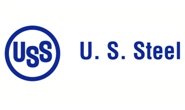Market Segment

May 2, 2019
U.S. Steel Investing $1.2 Billion at Mon Valley Works
Written by Sandy Williams
U.S. Steel announced plans to give Mon Valley Works a $1.2 billion upgrade. Expansion plans include a new sustainable endless casting and rolling facility at its Edgar Thomson Plant in Braddock, Pa., and a cogeneration facility at its Clairton Plant in Clairton, Pa.
The endless casting and rolling technology combines thin slab casting and hot rolled band production into one continuous operation. The new technology will replace the existing slab caster and hot strip mill and utilize the facility’s two blast furnaces. The slabs are reduced by the hot rolling stands to a thickness of approximately 0.030 inches. Construction is expected to take 24 months, once permits are approved, with steel coil production starting in 2022. The new facility will have the same level of annual steelmaking capacity currently at Mon Valley, 2.9 million tons.
The new casting and rolling system will make Mon Valley Works the principal source of substrate for production of U.S. Steel’s XG3™ Advanced High Strength Steel used by the automotive industry to reduce vehicle weight.
Mon Valley will be the first facility in the U.S. to employ the technology and one of only a few in the world. A spokesperson for U.S. Steel said the design and equipment will be supplied by Primetals Technology and Arvedi. The project will be financed by a combination of vendor-supported financing, senior unsecured notes, cash and asset-based lending. The $1.2 billion capital investment includes $150 million to $200 million for the cogeneration facility at Clairton.
Construction of a new cogeneration facility, equipped with the latest emissions control systems at the Clairton Plant, will allow U.S. Steel to convert a portion of the coke oven gas generated at Clairton into electricity to power the steelmaking and finishing facilities throughout U.S. Steel’s Mon Valley operations.
The Clairton plant has been the subject of numerous emissions violations resulting in hefty fines for U.S. Steel over the past several years. The Allegheny County Health Department imposed fines of more than $2.3 million just in 2018. Fire damage to gas processing equipment on Christmas Eve spewed high levels of sulfur dioxide in the Mon Valley region, prompting a federal lawsuit by environmental groups.
The new cogenerating facility will replace the existing facility, significantly improving emissions, including reductions in emissions of Particulate Matter (PM) of approximately 60 percent, PM10 and PM2.5 of approximately 35 percent, sulfur dioxide of approximately 50 percent, and nitrogen oxides of approximately 80 percent, the company said.
“This is a truly transformational investment for U.S. Steel. We are combining our integrated steelmaking process with industry-leading endless casting and rolling to reinvest in steelmaking and secure the future for a new generation of steelworkers in Western Pennsylvania and the Mon Valley,” said U.S. Steel President and CEO David B. Burritt.







